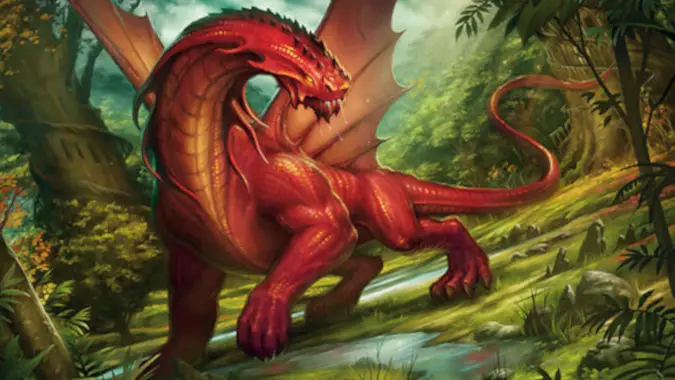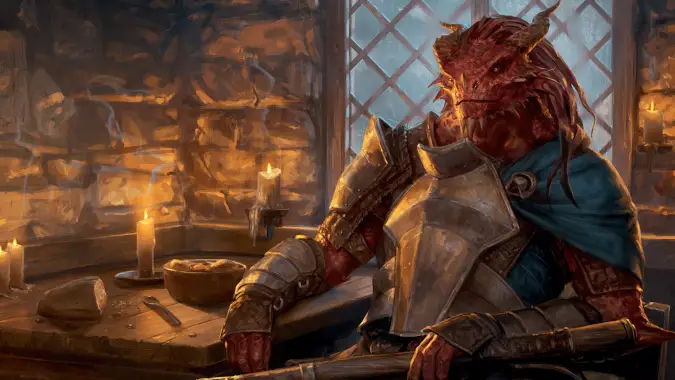How to switch between DMing and playing in D&D

Some people are what’s called eternal DMs — they got into Dungeons and Dragons or other TTRPGs and started running games at some point, and it became almost all they ever do. There are DMs that like that who almost never take a role as a player, and others that would like to take a break from setting up the campaigns and adjudicating the games to really inhabit a single character once in a while. Likewise, there are players who occasionally DM, or even DM quite frequently, but who find themselves more often in the role of a player in other people’s games. All of these are fine options, but it’s true that it can be a bit of an adjustment to switch between the DM chair and that of a player.
Because I’m stubborn and I’ve been playing for a very long time, I have some advice for players who are about to switch from DM to player, or player to DM, and are curious about what changes and how the approaches can differ, as well as some common mistakes we all make from time to time.

If you are not DMing, you are not the DM
I often have to bite my tongue when I’m playing in someone else’s game because my first instinct is to backseat DM the game. If you’ve been running games for a long time it can often become a familiar, etched in default setting and you don’t even realize you’re doing it, but try always to approach the game from the perspective of your character, not the overarching architect of the game. Dungeon Mastering can be a lot of fun, but it also requires keeping a lot of plates spinning in the air at once. It’s not helpful for you to be there pointing out when the DM drops one — maybe they just made a small error, or maybe it was a deliberate choice and either way it’s not your job to police them.
Similarly, often you’ll know the rules pretty well, and you’ll think you’ve caught the DM in an outright mistake. I’m not telling you never to point out when a DM gets something wrong, but try and be chill and not confrontational about it. Make it a question, ask the DM if that’s how the rule works, and in general just don’t add to the feeling of pressure a lot of DMs go through running a game.
Even the most experienced DMs can make mistakes — and you’ve made some yourself, most likely — so don’t be aggressive about this kind of thing. You’re there as a player, not the referee or judge. The DM is literally playing the entire world, everybody in it, and everything that happens to the party. In fact, this may in fact be a real problem for you as a usual DM who is now playing a specific character — you’re so used to having everything bouncing around in your head that keeping focused on the character you’re playing feels almost too static. Give yourself permission to relax and just be Droogh, Orc Cleric of Belly Rubs and Soft Kitty Grooming, or whoever you’re playing — I’m not there, go nuts. Play a Tiefling Paladin/Sorcerer, a Hadozee Eldritch Knight, whatever tickles you. It’s your time to finally flesh out a specific person instead of having to be literally everything all the time — let yourself enjoy it.

You’ve been playing for a while and now you’re the DM? Relax, you’ve got this
There’s a lot of potential advice to give a player running their first D&D game. In fact we’ve given a lot of it. So I won’t throw a ton of advice about how to run a game or so on here. Instead, I’ll say the one thing that most new DMs don’t get to hear enough:
This really doesn’t have to be that hard.
Yes, it’s work. There’s a lot going on, and you have to be the person who presents everything to the players. Being a player is like being an improvisational actor with a pre-determined backstory, reacting to events and deciding on your character’s choices. Being a DM is being the events the party reacts to. You’re the mother of the Orc Belly Rub Cleric and you’re the assassins trying to kill her. You’re the Hadozee Eldritch Knight’s mentor, the chieftain of his tree village in the Emerald Scale Mountains, and you’re the Dragon Putrifax that sleeps in the swamps to the south and who hungers to eat the whole village.
So yeah, it can be a lot to keep track of. But once you give yourself permission to just do the best you can, you’ll often find it’s a lot less stressful than you were expecting. A real secret to DMing is to let the players decide what they want to do and then react to that. If they throw you a curve ball, lean into it — and remember, all those character backstories that you have up until now just been the one writing? Now you can make use of them. If your player writes that her family has always been shipwrights and left after a quarrel with her family? Bring the black sheep of the family, a Warlock under a pact to Orcus, into the game and let the player bounce off of him for a while.
As a player, you were perhaps under the impression that the DM did everything. But it’s what the players give the DM that makes the best games, and as someone who has played but not done much DMing, this is your chance to witness that phenomenon in action. Let them run wild. Let them do whatever bizarre or crazy thing they come up with — and then use it to bring in even more weird surprises and grin knowing it was their fault all along.
Ultimately, as a DM or a player, this is a game and it’s meant to be fun. Make sure you’re not taking that fun away from anyone, and encourage your players to help you learn how best to conduct the crazy orchestra that is a D&D game.
Please consider supporting our Patreon!
Join the Discussion
Blizzard Watch is a safe space for all readers. By leaving comments on this site you agree to follow our commenting and community guidelines.
 @MatthewWRossi
@MatthewWRossi





